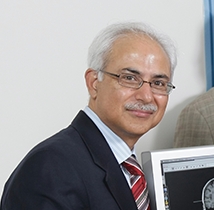Nova Scotia First Of Canada’s Atlantic Provinces To Fund Aubagio Treatment For Relapsing Remitting Multiple Sclerosis

Canada has one of the world’s highest Multiple Sclerosis (MS) prevalence rates. Some 100,000 Canadians live with the disease, and three people are newly diagnosed each day. Most people are diagnosed with relapsing MS in their twenties and thirties, and MS is the most common neurological disease affecting young adults in Canada.
Genzyme, a Sanofi company, announced January 5 that Nova Scotia has become the first of Canada’s four Atlantic Provinces to include AUBAGIO (teriflunomide) 14 mg treatment on its provincial drug formulary as a first-line oral agent for people in the province living with relapsing remitting multiple sclerosis (RRMS).
AUBAGIO was approved by Health Canada In November 2013 as monotherapy for treatment of patients with RRMS to reduce clinical exacerbation frequency and delay accretion of physical disability. The approval was based on efficacy data from two Phase III clinical trials TEMSO (TEriflunomide Multiple Sclerosis Oral) and TOWER (Teriflunomide Oral in people With relapsing remitting multiple scleRosis). In the TEMSO trial, AUBAGIO 14 mg significantly reduced the annualized relapse rate (p=0.0005) and the time to disability progression (p=0.0279) at two years versus placebo in patients with RRMS. In the TOWER trial, AUBAGIO 14 mg significantly reduced the annualized relapse rate (p=0.0001) and the time to disability progression sustained for 12 weeks (p=0.0442) was statistically significantly reduced versus placebo in patients with RRMS.
 “I am pleased that AUBAGIO has gained a listing in Nova Scotia. This recently approved oral medication provides another reasonably safe and effective treatment choice for our MS patients.” comments Dr. Virender Bhan, an assistant professor in the Department of Medicine and the Division of Neurology at Dalhousie University in Halifax, Nova Scotia, a Neurologist at the capital city’s QEII Health Sciences Centre, and Director of the Dalhousie Multiple Sclerosis Research Unit (DMSRU).
“I am pleased that AUBAGIO has gained a listing in Nova Scotia. This recently approved oral medication provides another reasonably safe and effective treatment choice for our MS patients.” comments Dr. Virender Bhan, an assistant professor in the Department of Medicine and the Division of Neurology at Dalhousie University in Halifax, Nova Scotia, a Neurologist at the capital city’s QEII Health Sciences Centre, and Director of the Dalhousie Multiple Sclerosis Research Unit (DMSRU).
Dr. Bhan’s research interests include MS epidemiology, efficacy of disease modifying therapies, inhibitors of apoptosis as biomarkers for MS severity and DMT responsiveness, and the effect of co-morbidities in MS. He is active in multi-centre clinical trials for potential DMTs in relapsing and progressive MS.
According to Genzyme, AUBAGIO is an immunomodulator with anti-inflammatory properties, and although the drug’s exact mechanism of action is not fully understood, it may involve reduction in the number of activated lymphocytes in the central nervous system (CNS). Genzyme notes that AUBAGIO is supported by one of the largest clinical trial programs of any MS therapy, with more than 5,000 trial participants in 36 countries. Some patients in extension trials have been treated for up to 10 years.
[adrotate group=”4″]
Described by the National Multiple Sclerosis Society, Aubagio is a pyrimidine synthesis inhibitor — an oral compound that inhibits the function of specific immune cells that have been implicated in MS. It is related to leflunomide, a drug used to treat rheumatoid arthritis. Aubagio can inhibit a key enzyme required by white blood cells (lymphocytes) — which in turn reduces the proliferation of T and B immune cells that are active in MS and also inhibits the production of immune messenger chemicals by T cells.
 “The MS Society is pleased that the Province of Nova Scotia remains responsive with their coverage of new treatments, including oral therapies, for those living with multiple sclerosis,” says Dena Simon, President of the MS Society of Canada’s Atlantic Division, “This responsiveness means Nova Scotians living with MS have greater access and more choice when it comes to treatments that manage the effects of their disease. For people with MS who are interested in exploring treatment options, we encourage them to consult with their healthcare team to find the course that is most appropriate for them.”
“The MS Society is pleased that the Province of Nova Scotia remains responsive with their coverage of new treatments, including oral therapies, for those living with multiple sclerosis,” says Dena Simon, President of the MS Society of Canada’s Atlantic Division, “This responsiveness means Nova Scotians living with MS have greater access and more choice when it comes to treatments that manage the effects of their disease. For people with MS who are interested in exploring treatment options, we encourage them to consult with their healthcare team to find the course that is most appropriate for them.”
 “We applaud the Government of Nova Scotia, the first jurisdiction in the Atlantic provinces, to make AUBAGIO available to patients suffering from RRMS. With its once-a-day oral regimen, this will provide patients an alternative to injectables,” says Genzyme Canada General Manager Peter Brenders,
“We applaud the Government of Nova Scotia, the first jurisdiction in the Atlantic provinces, to make AUBAGIO available to patients suffering from RRMS. With its once-a-day oral regimen, this will provide patients an alternative to injectables,” says Genzyme Canada General Manager Peter Brenders,
Aubagio was approved by the U.S. Food and Drug Administration (FDA) in September, 2012 for patients with relapsing forms of multiple sclerosis. In one phase III study involving 1088 people with relapsing MS (796 completed the trial), oral Aubagio reduced relapses compared with placebo over at least 108 weeks. Of two different doses tested during the TEMSO trial (7 mg and 14 mg), the higher dose also slowed progression of disability. Both doses also had a favorable effect on several MRI measures, including a smaller increase in total lesion volume and fewer new and actives lesions compared with placebo.
Two subsequent phase III trials have been published and the FDA approved inclusion of these trial results in the prescribing information for Aubagio in 2014. New information includes the ability of Aubagio to reduce the risk of relapse in people who have experienced a first clinical event suggestive of MS (clinically isolated syndrome).
• In the TOPIC Study, 618 people with clinically isolated syndrome (CIS — a first clinical episode suggestive of MS) were randomly assigned to receive 7 mg of Aubagio, 14 mg of Aubagio, or placebo once daily for 108 weeks. The primary outcome measure was time to relapse. A secondary outcome measure was time to relapse or the occurrence of new tissue damage on MRI scans, whichever occurred first. Compared to placebo, the risk of relapse was reduced by 42.6% among those taking the 14 mg dose, and by 37.2% among those taking the 7 mg dose. For the secondary endpoint, the risk of relapse or occurrence of new tissue damage was reduced by 34.9% in the 14-mg group and 31.4 % in the 7-mg group compared with the placebo group.
• In the TOWER Study, 1,169 people with relapsing forms of MS were randomly assigned to receive 7 mg or 14 mg of Aubagio, or placebo, once daily for 48 weeks. The primary endpoint was whether Aubagio reduced the average number of relapses per year significantly more than placebo. Secondary endpoints included the time to disability progression confirmed for at least 12 weeks. Aubagio 14 mg reduced relapses by 36.3% versus placebo and Aubagio 7 mg reduced relapses by 22.3% versus placebo. In the 14 mg group, the risk of sustained disability progression was reduced by 31.5%, while the lower dose did not significantly reduce progression.
Regarding safety and counter-indications, Genzyme cautions that for persons who have severe liver problems. AUBAGIO may cause serious complications that can be life-threatening, and risk may be higher if you take other medicines that affect your liver. Healthcare providers should do blood tests to check your liver within 6 months before a patient starts AUBAGIO and monthly for 6 months after starting AUBAGIO.
For persons who are pregnant or are of childbearing potential and not using effective birth control. AUBAGIO may harm an unborn baby. Patients should have a pregnancy test before starting AUBAGIO. After stopping AUBAGIO, continue to use effective birth control until a patients has made sure your blood levels of AUBAGIO, which can linger for up to two years, are lowered. Men whose partners plan to become pregnant should stop taking AUBAGIO and talk with your healthcare provider about reducing the levels of AUBAGIO in the blood. If a partner does not plan to become pregnant, the use of effective birth control while taking AUBAGIO is necessary.
As part of its commitment to the community of individuals living with MS, Genzyme has offers its MS One to One program which provides MS patients comprehensive information services, ongoing education, and drug reimbursement navigation assistance. Staffed by MS nurses and other highly-trained representatives, MS One to One provides support for persons living with MS, their health care providers, families, and friends.
For more information, visit:
https://www.genzyme.ca
Sources:
Genzyme
MS Society of Canada
The National Multiple Sclerosis Society
Dalhousie University
Image Credits:
Dalhousie University
MS Society of Canada
Cameron Institute






